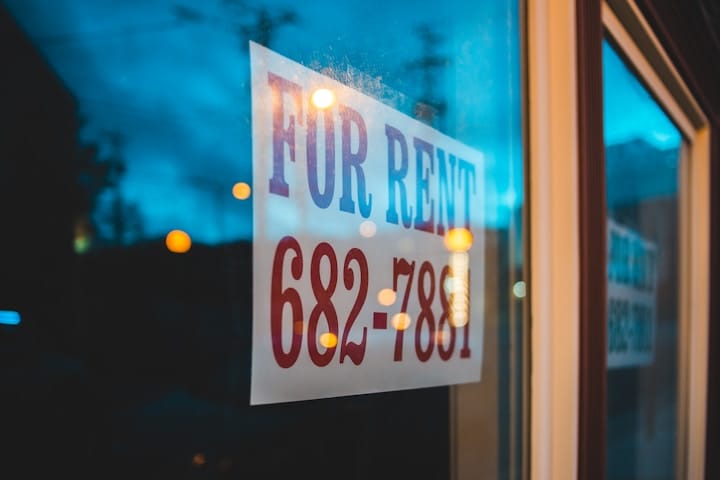Introduction
Understanding the rental market is crucial for both tenants and property owners alike. In urban areas, where housing demand frequently outstrips supply, navigating this market can become complex and competitive. As cities continue to grow and evolve, the landscape of rental properties changes, presenting both challenges and opportunities for individuals seeking a place to live or invest.
For prospective tenants, knowing what to look for in a rental property and understanding their rights can save time and money. For landlords or property managers, comprehending market trends, legal obligations, and effective marketing strategies can maximize rental income and minimize vacancies. In this post, we’ll explore the nuances of the rental market, from finding the right place to understanding lease agreements and financing options.
Skip Ahead
- Understanding the Rental Market Landscape
- Tips for Tenants Searching for Rentals
- What Landlords Should Know About Renting
- Financing and Investment Strategies
- Navigating Lease Agreements
- The Importance of Property Maintenance
- Staying Compliant with Rental Laws
- Future Trends in the Rental Market
Understanding the Rental Market Landscape
To effectively navigate the rental market, it’s essential first to understand the dynamics of the local housing market. Various factors influence rental rates, including:
- Supply and Demand: The availability of rental properties and the number of potential tenants significantly affect rental prices. In densely populated urban areas, demand often exceeds supply, leading to higher rents.
- Economic Factors: Employment rates, income levels, and overall economic conditions can impact people's ability to afford rent, thus affecting overall demand in the market.
- Seasonal Trends: Rental markets can be seasonal, with fluctuations in demand during different times of the year. Understanding these trends can help both tenants and landlords make informed decisions.
- Neighborhood Characteristics: The desirability of specific neighborhoods can affect rental prices. Proximity to amenities like schools, parks, shopping centers, and public transport can lead to increased demand.
Understanding these elements can help tenants find a rental that fits their budget and expectations while providing landlords with insights into pricing strategies.

Tips for Tenants Searching for Rentals
If you're embarking on the quest to find your ideal rental home, consider the following strategies to simplify the process:
1. Establish Your Budget
Before you start looking for a rental, determine how much you can afford to spend on rent each month. As a general rule, your monthly rent should not exceed 30% of your gross monthly income.
2. Create a Wants and Needs List
Define your priorities in a rental property. This list can include the number of bedrooms, proximity to work or school, pet-friendliness, and amenities such as laundry facilities.
3. Utilize Online Platforms
Websites like Zillow and Apartments.com can streamline your search. These platforms allow you to filter searches based on your criteria, compare prices, and contact landlords directly.
4. Visit the Property
Before signing any lease, always visit the property in person. Inspect the condition of the property, the neighborhood, and any amenities offered. Take note of any potential red flags, such as signs of neglect or pest issues.
5. Understand the Application Process
Familiarize yourself with what landlords typically require during the application process, including background checks, credit history, and income verification.
By staying organized and informed, you can more easily navigate the rental market and find a property that meets your needs.
What Landlords Should Know About Renting
For landlords, successfully managing rental properties requires a balance of effective marketing, tenant relations, and compliance with laws. Here are critical considerations:
1. Understand Your Market
Research your local rental market to set competitive rental prices. You may use tools like Rentometer to analyze rental prices in your area.
2. Screen Tenants Carefully
To minimize risk and ensure you find reliable tenants, implement thorough screening procedures. This might include background checks, credit assessments, and contacting previous landlords.
3. Draft a Clear Lease Agreement
Create a lease agreement that outlines all terms of the tenancy, including rent payment schedules, security deposits, and rules for property use. A well-defined lease can prevent misunderstandings and legal issues down the line.
4. Regularly Maintain Your Property
Conduct regular maintenance to uphold the property's condition and ensure tenants are satisfied. Immediate repairs prevent small issues from becoming major headaches.
5. Build Positive Relationships with Tenants
Fostering a good relationship with your tenants can lead to longer lease terms and better communication. Be approachable for tenant concerns and responsive to maintenance requests.
Being proactive and informed can enhance the renting experience for both parties.

Financing and Investment Strategies
Investing in rental properties can be a lucrative endeavor, but understanding financing options is crucial. Here are some tips for landlords:
1. Traditional Mortgages vs. Investment Loans
If you're purchasing a rental property, you’ll primarily be choosing between conventional home loans and investment property loans. Investment loans typically require a larger down payment and carry higher interest rates.
2. Leverage Equity
If you own properties outright, you can leverage their equity to finance additional purchases. A home equity line of credit (HELOC) allows you to borrow against your home’s equity.
3. Consider Real Estate Investment Trusts (REITs)
If owning a physical rental property doesn’t appeal to you, consider investing in a REIT. These allow you to invest in real estate without directly purchasing property. Through publicly traded REITs, you can buy shares just like stocks.
4. Calculate the Cash Flow
Understand all expenses associated with the rental property, including mortgage payments, property taxes, insurance, and maintenance costs. Ensure your rent covers these expenses while providing a positive cash flow.
Investing in the rental market requires savvy financial management and continuous education on property investment trends.
Navigating Lease Agreements
A lease agreement is a legally binding contract that outlines the terms between a landlord and a tenant. Here’s how to navigate it effectively:
1. Read Thoroughly
Before signing a lease, read it carefully. Look for clauses regarding rent increases, maintenance responsibilities, and security deposits.
2. Negotiation
Don't hesitate to negotiate terms in the lease. This might include the rental price, pet policies, or even the duration of the lease. Landlords may be open to negotiation, especially if the rental market is competitive.
3. Understand the Security Deposit Terms
Know the terms associated with the security deposit, including the amount, conditions for its return, and the timeline for returning it at the end of the lease.
4. Document Everything
When moving in and out, take pictures of the property’s condition. This documentation can support disputes regarding damages when your lease ends.
5. Know Your Rights
Familiarize yourself with tenant rights laws and protections in your state. Resources like Nolo can help you understand your legal standing.
By understanding your lease, you can protect yourself from future conflicts and ensure a smoother renting experience.
The Importance of Property Maintenance
Property maintenance is crucial in retaining tenants and protecting your investment. Here are best practices for effective property maintenance:
1. Schedule Regular Inspections
Conduct periodic inspections to identify and address maintenance issues before they become significant problems.
2. Responsive Communication
Establish a system for tenants to report maintenance issues quickly. Prompt responses foster goodwill and trust between you and your tenants.
3. Hire Professional Services
Consider using professional maintenance services to ensure repairs are done correctly and efficiently. These contractors can provide specialized knowledge in areas such as plumbing, electrical work, or general repairs.
4. Keep Properties Clean and Safe
Providing a clean and safe living environment is essential. This might include regular landscaping, pest control, and adherence to safety codes.
Proper maintenance not only keeps your tenants happy but also increases the longevity and value of your property.

Staying Compliant with Rental Laws
Navigating the legal landscape of rental properties can be daunting. Here’s how to ensure compliance:
1. Familiarize Yourself with Local Laws
Each state and municipality may have specific regulations governing rental properties. Regularly review these laws to stay compliant and avoid legal entanglements.
2. Fair Housing Act Compliance
Understand the Fair Housing Act, which prohibits discrimination based on race, color, national origin, religion, sex, familial status, or disability. This is crucial in tenant selection processes.
3. Update Lease Agreements as Necessary
Refine lease agreements to stay compliant with any changes in housing regulations. Regularly consulting with a legal professional can help keep your documents up to date.
4. Maintain Proper Documentation
Keep records of all tenant interactions, leases, and maintenance requests. Should legal disputes arise, thorough documentation can protect you and your property.
Complying with rental laws assures that you are operating legally and ethically as a landlord.
Future Trends in the Rental Market
As the rental market continues to evolve, several trends are shaping its future:
1. Increased Focus on Sustainability
Renters are increasingly looking for eco-friendly properties. By implementing sustainable practices, landlords can attract environmentally conscious tenants. Consider upgrades such as energy-efficient appliances or solar panel installations.
2. The Growing Demand for Flexibility
The rise of remote work has created a need for more flexible leasing options. Offering short-term rentals or month-to-month agreements can capture a new demographic of renters.
3. Technology Integration
The use of technology in the rental market is increasing, with property management software and online payment systems streamlining operations for landlords. Smart home devices can also appeal to tech-savvy tenants.
4. Affordable Housing Initiatives
As housing prices rise, there’s a growing demand for affordable housing solutions. Landlords may want to explore opportunities to participate in local housing programs that promote affordability while ensuring stable income.
By keeping these trends in mind, both renters and landlords can better prepare for the future of the market.
Conclusion
Navigating the rental market, whether as a tenant or a landlord, requires knowledge, strategy, and a proactive approach. Understanding the dynamics of your local market, leveraging technology, and ensuring compliance with legal obligations can lead to successful outcomes. By staying informed of trends and market changes, you can position yourself favorably in the rental landscape for years to come.
As you embark on your rental journey, remember that communication, thorough research, and careful planning are key components to making your experience – whether as a tenant looking for a home or a landlord managing a property – as smooth and rewarding as possible.







